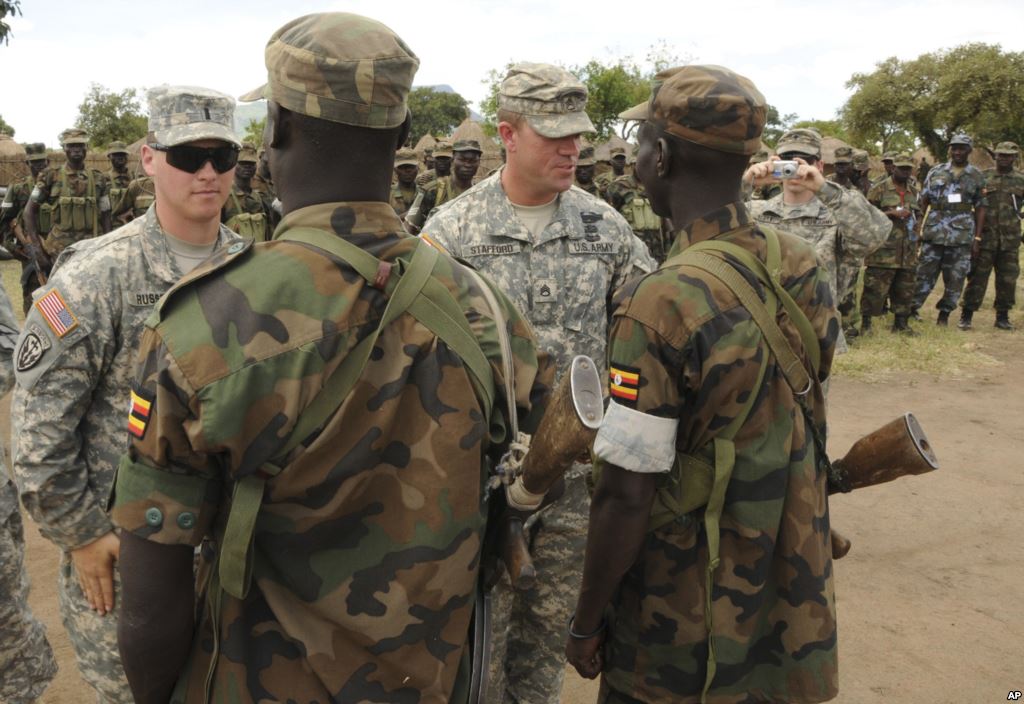Khartoum (HAN) April 17, 2014 – Growing instability in the Horn of Africa, including Somalia, Ethiopia, Eritrea, Kenya, Sudan and Central Africa will be the focus of Washington’s intervention.
The U.S. military leaders and Congress must acknowledge that the underlying reasons for the build-up in Africa are clearly related to the economic and class interests of Washington and Wall Street. East and Central Africa is a vast repository of oil, natural gas and strategic minerals.
Over the last two months developments in Central and East Africa has dominated the news coverage of Africa. Pentagon officials are finding that greater U.S. military involvement in Africa will be harder than they had imagined.
Despite an impressive logistics machine that regularly deploys and supplies troops around the globe, the U.S. military will have difficulties in Africa because it lacks the support infrastructure that the United States has in other parts of the world, senior officials said.
The size of Africa, itself — twice as wide as the United States from East to West — creates asignificant transportation problem, said Marine Corps Lt. Gen. Robert R. Ruark, director of logistics on the Joint Chiefs of Staff.
U.S. forces currently are deployed in Niger, Mali, South Sudan, Somalia, the Central African Republic and Djibouti. The Republic of Djibouti is in the Horn of Africa, on the North East tip of the continent. The U.S. base there serves as the main hub for military operations because it is the only location on the continent that can provide the required services. This limits commanders’ response time if they have to move troops to other regions of Africa, Ruark said. “We seem to be operating mainly from one enduring location.”
Africa’s size and geography “affect our response options and times,” he said April 15 at the National Defense Industrial Association’s logistics forum in Washington, D.C.
The Joint Chiefs are studying this problem, Ruark said. Officials believe that more work is needed to create a reliable network of suppliers and transportation providers that can support small teams of U.S. forces that may have to deploy on short notice.
“The challenge is to develop a sustainment concept that supports distributed operations,” said Ruark. Distributed operations is a term the Pentagon uses to describe the deployment of small military units. The U.S. government does not intend to send large-size forces to Africa but believes it needs a limited presence to help train local allies to fight extremist groups whose influence there is growing.
Strengthening partnerships plays a vital role for Combined Joint Task Force — Horn of Africa and the Civil Affairs team is at the fore front of that mission.
Among the obstacles for U.S. forces in Africa are limited access to sources of supplies and a distribution network that is not reliable, Ruark said. Unlike full-size Army brigades, smaller units must travel light and rely on outside means of support. “Distributed operations increase our self-sustaining requirements,” said Ruark.
Another weakness is poor communications systems, he said. “We need a robust and agile global distribution network with multiple nodes that are secure and resilient,” he said. Decades of basing forces in Europe and the Middle East helped build a support infrastructure for the U.S. military that it lacks in Africa. The goal is to forge alliances with local governments there that can be trusted to provide the needed support, Ruark said. “We’ll need healthy, multinational partnering agreements in the operating area.”
For operations in Africa, the military also will need more U.S. and local support contractors, said Ruark. As a former director of logistics at U.S. Central Command, Ruark was impressed by contractors’ abilities to deliver “door-to-door services” during the wars in Iraq and Afghanistan, he said. “Contractors picked up cargo in Fort Bragg [North Carolina] and took it all the way to FOBs [forward operating bases] in Afghanistan,” Ruark said. “I don’t think that’s ever been done before. I think that is fascinating. … It was the only politically acceptable solution. It keeps troops off the road,” he said. “We probably need to invest more in operational contractor support.”
The military’s expanded role in Africa is part of the Obama administration’s four-part strategy to strengthen democratic institutions, develop trade and investment, boost security and promote development.
–
Speaking Freely is an Geeska Afrika Online and Horn of Africa Newsline (HAN) feature that allows guest writers to have their say. if you are interested in contributing or sending News, Views and Comments. Please email at: han@geeskaafrika.com
–
HAN & Geeska Afrika Online (1985-2014), the oldest free independent Free Press in the region, brings together top journalists from across the Horn of Africa. Including Ethiopia, Somalia, Eritrea, Sudan, Djibouti, South Sudan, Uganda, Kenya, Oromo, Amhara, Somali, Afar and Harari. Plus, we have daily translations from 150 major news organizations in the Middle East and East African regions. Contact at news@geeskaafrika.com



Leave a Reply